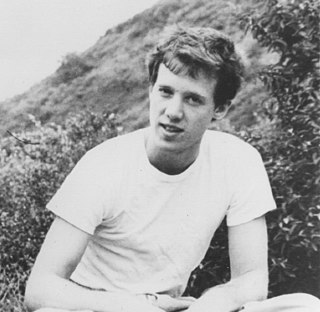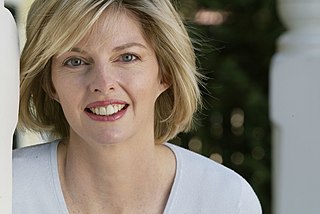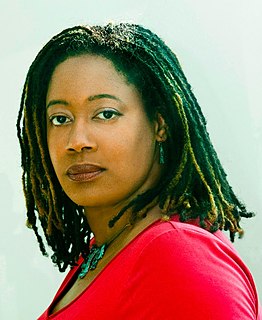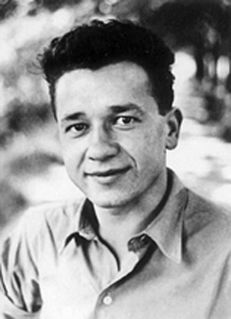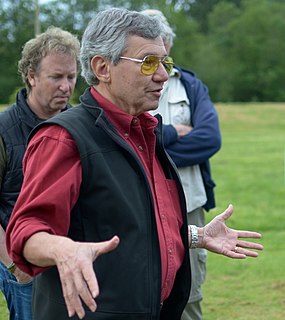A Quote by Sherwood Anderson
If our family was poor, of what did our poverty consist? If our clothes were torn the torn places only let in the sun and wind. In the winter we had no overcoats, but that only meant we ran rather than loitered.
Related Quotes
Ninety percent of our lives is governed by emotion. Our brains merely register and act upon what is telegraphed to them by our bodily experience. Intellect is to emotion as our clothes are to our bodies; we could not very well have civilized life without clothes, but we would be in a poor way if we had only clothes without bodies.
Words got in the way. The things we felt the hardest--like what it was like to have a boy touch you as if you were made of light, or what it meant to be the only person in the room who wasn't noticed--weren't sentences; they were knots in the wood of our bodies, places where our blood flowed backward. If you asked me, not that anyone ever did, the only words worth saying were I'm sorry.
So long as we insist upon defining our identities only in terms of our work, so long as we try to blind ourselves to the needs of our children and harden our hearts against them, we will continue to feel torn, dissatisfied, and exhausted…. The guilt we feel for neglecting our children is a byproduct of our love for them. It keeps us from straying too far from them, for too long. Their cry should be more compelling than the call from the office.
We've sweated and torn out our hair trying to reconstruct our chosen lives, to fashion them like literary sculptures, at once monumental and yet human. We've applied all of our intelligence, our empathy, our critical faculties, our compassion - and we think, in our delusion, that it's still 1960, and our work is going to get noticed.
How I will cherish you then, you grief-torn nights! Had I only received you, inconsolable sisters, on more abject knees, only buried myself with more abandon in your loosened hair. How we waste our afflictions! We study them, stare out beyond them into bleak continuance, hoping to glimpse some end. Whereas they're really our wintering foliage, our dark greens of meaning, one of the seasons of the clandestine year -- ; not only a season --: they're site, settlement, shelter, soil, abode.
That sense – the only true patriotism – comes slowly and springs from the heart: it is founded upon respect for the family and love for the soil. Premature ‘liberty’ of this kind would have been a disaster: we should have been torn to pieces by petty squabbles before we had ever reached political maturity, which, as things were, as made possible by the long quiet years under monarchical government; for it was that government which, as it were, nursed our strength and enabled us ultimately to produce sound fruit from liberty, as only a politically adult nation can.
When we want to help the poor, we usually offer them charity. Most often we use charity to avoid recognizing the problem and finding the solution for it. Charity becomes a way to shrug off our responsibility. But charity is no solution to poverty. Charity only perpetuates poverty by taking the initiative away from the poor. Charity allows us to go ahead with our own lives without worrying about the lives of the poor. Charity appeases our consciences.
It was very bad if the council had resorted to recruiting men. By tradition men were our last line of defence, their physical strength bent towards the single and most important task of protecting our homes and children. This meant the council had decided that our only defence was to defeat the enemy, period. Anything else meant the end of Darre.
Why is it that nobody cries out, nobody spits in their faces, nobody jumps at their throats? We doff our caps to the S.S. men returning from the little wood; if our name is called out we obediently go with them to die, and we do nothing. We starve, we are drenched by rain, we are torn from our families. What is this mystery? This strange power of one man over another? This insane passivity that cannot be overcome? Our only strength is our great number; the gas chambers cannot accommodate all of us.





